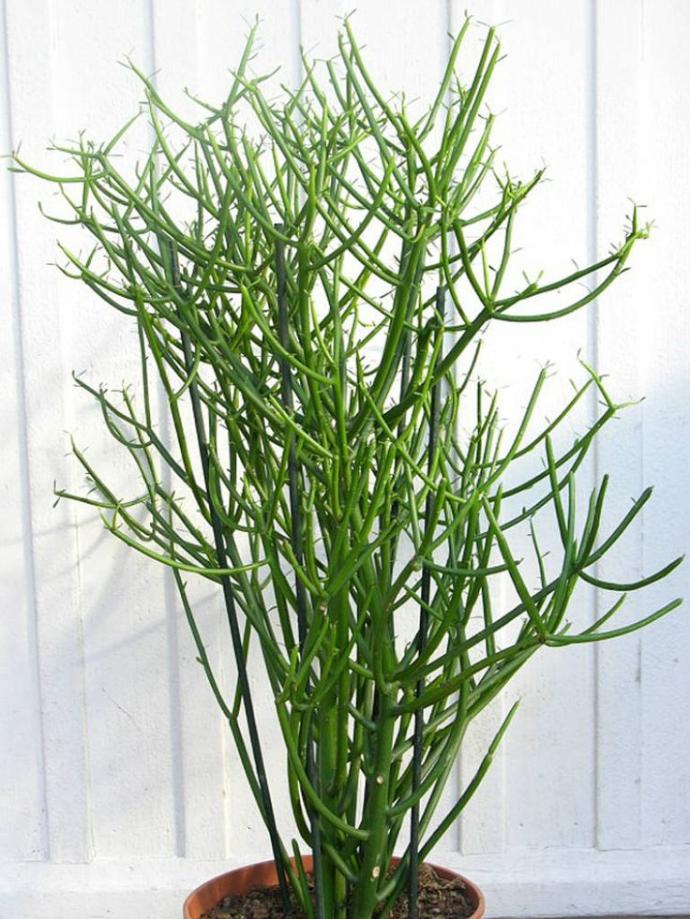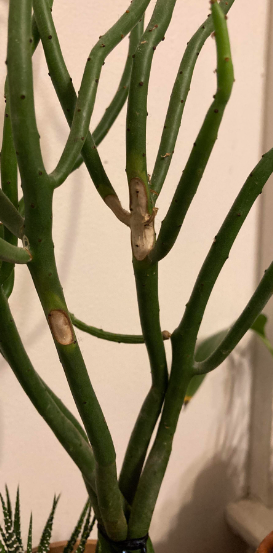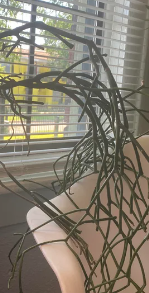Pencil Tree
| The Pencil Tree, commonly called as Pencil Cactus is a drought-tolerant shrub with thin, pencil-like branches. It prefers well-draining soil and full sun. It is grown for its unique appearance rather than any edible or medicinal properties. |

Habit
Succulent shrub
Height
5 to 15 m
Growth
Slow
Soil
Well-drained, Sandy Loam
Shade
Full sun
Moisture
Low
Edible
No
Medicinal
No
Origin
Australia, India
Climatic Condition
Tropical, Subtropical
Temperature (°)
20°C to 35°C
Humidity (%)
60% to 80%
Potting media
50% Loam, 40% Sand, 10% Organic Matter
Fertilizers
Organic Fertilizer
Watering
Regular watering
Plant Weight
1 to 5 kg
Flowering Time
Summer to Fall
Soil Ph level
6.0 to 7.5
Water Ph level
6.0 to 7.0
Soil EC
0.5 to 1.0 mS/cm
Yield Per Plant
Ornamental
NPK ratio
3:02:01
life Span
10 to 20 years
Health Benefits
Ornamental, Erosion Control
Suggested Grow Media or Potting Mix ?
| 40% peat moss, 30% perlite, 30% compost |
Suggested Fertigation/Fertilizers
| Fertilize every 2 months with slow-release fertilizer |
Common Diseases and Remedies
Root rot, Powdery mildew, Leaf spot, Aphids, Scale insects
Yellowing, black or brown spots on leaves, powdery coating, wilting
Systemic fungicides, insecticidal soap, horticultural oil
HEALTH BENEFITS
⚠️ Toxicity Warning: The milky sap is highly toxic and can cause skin irritation and eye damage.
· Traditionally used in small doses for treating skin diseases and joint pain.
Some research suggests potential anti-cancer properties, but it must be used with caution.

